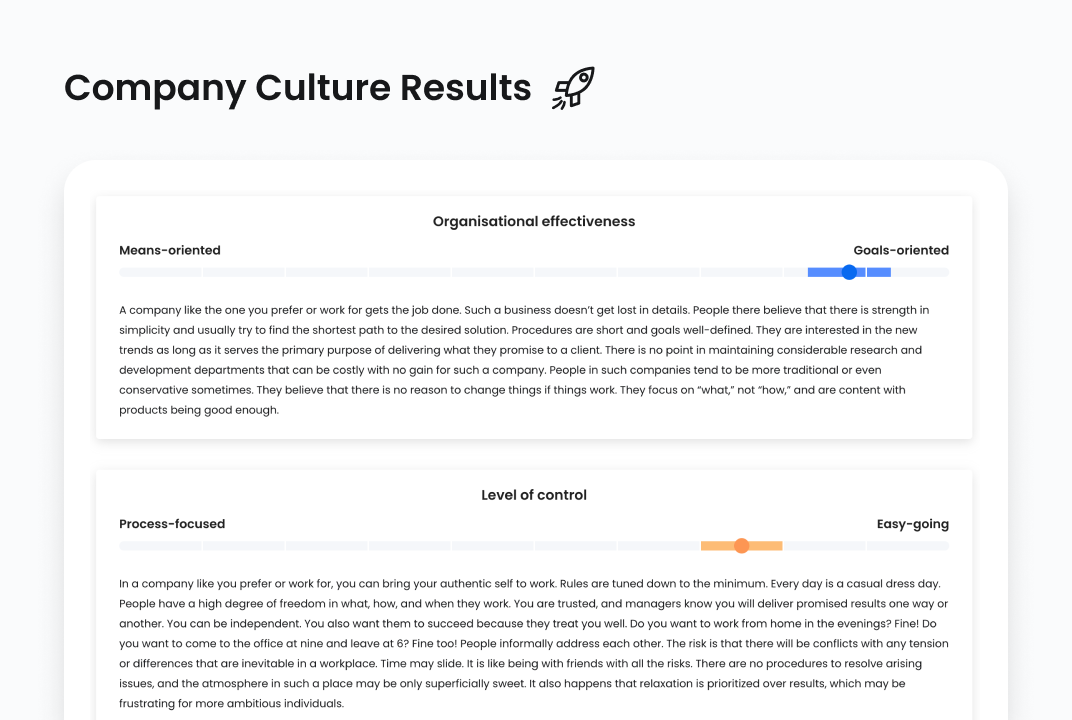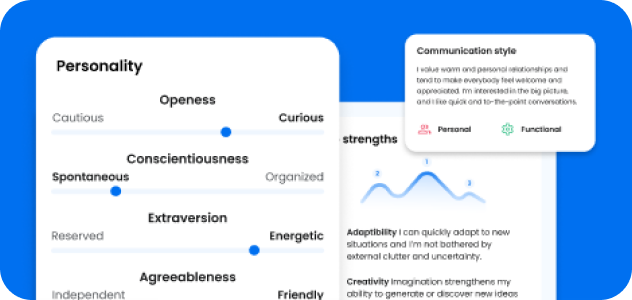Cultural assessment

Scientific assessments, with this cultural values test inspired by Hofstede’s culture insights.
Benefits
Gyfted’s free online organizational culture assessment provides you with insights into your cultural fit in the workplace. You will be able to better understand whether you are competitive and independent at work and what you should look for in the next company you join.
Why is this of value to me?
How you can use this test?
How it works?
you’re at ease, undisturbed
and ready to focus.
you through the process. It’s
easy - just go with your gut
feeling.
you will receive your
feedback immediately
anyone, with just a click of a
button
What's Inside? Get immediate feedback by measuring these traits in you
Cultural assessment
Assessment Insights
Scientific and Empirical Foundations
Hofstede's cultural dimensions theory: Hofstede, G. (1980). Culture's Consequences: International Differences in Work-Related Values. Beverly Hills, CA: Sage Publications. Assessment of company culture: Cameron, K. S., & Quinn, R. E. (2006). Diagnosing and changing organizational culture: Based on the competing values framework. John Wiley & Sons. Company culture and job satisfaction: Judge, T. A., Thoresen, C. J., Bono, J. E., & Patton, G. K. (2001). The job satisfaction–job performance relationship: A qualitative and quantitative review. Psychological Bulletin, 127(3), 376–407. Company culture and effective collaboration: Schein, E. H. (2010). Organizational culture and leadership. John Wiley & Sons. Company culture and hiring: Kristof-Brown, A. L., Zimmerman, R. D., & Johnson, E. C. (2005). Consequences of individuals' fit at work: A meta-analysis of person-job, person-organization, person-group, and person-supervisor fit. Personnel Psychology, 58(2), 281-342. Impact of company culture on work environment: Denison, D. R. (1990). Corporate culture and organizational effectiveness. John Wiley & Sons. Company culture and values: Hogan, R. J., & Holland, B. (2003). Using theory to evaluate personality and job-performance relations: A socioanalytic perspective. Journal of Applied Psychology, 88(1), 100-112.


